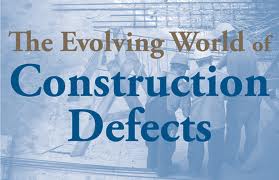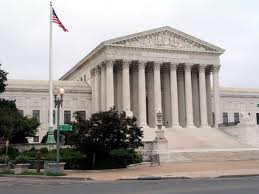The federal district court approved a class action settlement in which class members were to receive coupons, and their lawyers were to receive cash. The Ninth Circuit reversed and remanded the matter to the district court, stating: “When a settlement provides for coupon relief, either in whole or in part, any attorney’s fee ‘that is attributable […]
Watch Out For That Nonsettling Party!
In a construction defect case, a homeowners association settled with all but one party, a roofing company. After the settling parties signed the settlement agreement, one of the defendants dismissed its cross-complaint against the nonsettling party, mailing its written notice of dismissal on July 14, 2011. The nonsettling party filed a cost bill on August 2, […]
Parties May Reserve Issue Of Prevailing Party In Settlement Agreement.
The parties to a litigation settled their dispute pursuant to a written settlement agreement, which stated: “This Settlement Sum is exclusive of attorney’s fees and costs. . . . [¶] [Plaintiff] shall apply to the Court by way of a motion for such attorney’s fees and costs incurred in the Action pursuant to California Civil Code […]
Approval Of Class Action Settlement Reversed.
A class action against credit agencies, which issued negative credit reports after debts were discharged, settled, and the district court approved the class action settlement. The Ninth Circuit reversed, explaining: “The settlement agreement, like others we have approved in the past, granted incentive awards to the class representatives for their service to the class. But unlike the […]
Settlement Offers To Compromise Under Code of Civil Procedure Section 998, Must Conform To Statute.
Since 2006, the statute governing statutory offers to compromise (Code of Civil Procedure section 998) has provided that the offers include “a provision that allows the accepting party to indicate acceptance of the offer by signing a statement that the offer is accepted.” The language of the statute is mandatory and Puerta v. Torres (Cal. App. […]
Attorney Fees Are Included In “Costs” In Section 998 Settlement Offer.
After accepting a settlement offer under California Code of Civil Procedure section 998, in a specified amount and providing “that each side bear their own costs,” plaintiff moved for statutory attorney fees. Defendant opposed contending that the term “costs” included statutory attorney fees. The trial court agreed with defendant and denied the motion. The Court of Appeal affirmed. Under […]
Joint Offer Pursuant To Section 998 Offer To Compromise Not Invalid.
The trial court awarded expert witness fees under Code of Civil Procedure section 998, Offer To Compromise, to the prevailing defendant in a wrongful death lawsuit. The plaintiffs argued on appeal the offer was invalid because it was a single offer made to two plaintiffs. The appellate court affirmed the award of costs, stating: “In a wrongful death action, […]
Ignoring An Offer to Compromise Under § 998 May Be Costly.
After two trials and a remitter, a medical malpractice case appeared to be over when judgment was entered for $1,437,276. But the parties soon became embroiled in an issue over costs. Two months after the complaint was served, plaintiff had served on defendant a document entitled “Acceptance of Plaintiffs’ Offer to Compromise Pursuant to [Section] 998 […]
“All Other Persons” In A Release Means All Other Persons.
Rodriguez was injured in a car accident and settled with the other driver, Oto, and the rental car company, Hertz, who rented a car to the other man. The release released: “Takeshi Oto and The Hertz Corporation, its employees, agents, servants, successors, heirs, executors, administrators and all other persons, firms, corporations, associations or partnerships (hereafter […]
Settlement Agreement Declared Void By Court.
In 2002, the city of Los Angeles amended its municipal code to ban off-site advertising signs and alterations and enlargements to existing off-site signs, along with an inspection program involving an inspection fee. An outdoor advertising business brought a reverse validation action under Code of Civil Procedure section 860, [The validation statutes permit a local […]





